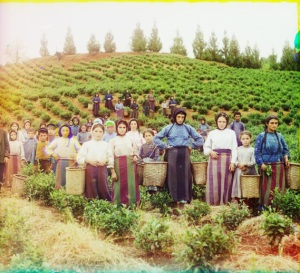This is the second part of a Disorders forum on Lenin Lives! Reimagining the Russian Revolution, 1917-2007 (Zero Books, 2017). For the rest of the forum, click here.
How far might Marxism be considered a genre of science – or rather ‘speculative’ – fiction? Speculative fiction, to borrow Judith Merril’s concise definition, refers to that form of writing ‘which makes use of the traditional “scientific method” (observation, hypothesis, experiment) to examine some postulated approximation of reality, by introducing a given set of changes – imaginary or inventive – into the common background of “known facts.”’ Or, to put it another way, people make history but not in circumstances of their own choosing: what might happen if the circumstances, or the choices, were different? For all those who cleave to the idea of October 1917 as the highest point yet reached of human emancipation, and not the genesis of the grey tyrannies that took the Russian revolution as their founding myth, the mode of speculative fiction is indispensable. The main reason for studying the degeneration of the Russian revolution is to imagine how it could have been different. It is for this reason, perhaps, that the best centennial treatment of the Revolution has come not from a historian or political scientist but a Speculative Fiction author: China Miéville’s magisterial October. Shorter in length, and necessarily narrower in scope, Philip Cunliffe’s Lenin Lives: Reimagining the Russian Revolution 1917-2017 is nonetheless to be commended for tackling the speculative mode dead on.
Seizing counterfactual history back from the blimpish fantasies of the right, Cunliffe draws out the inherent speculative premise of any anti-Stalinist Left: the bad timeline hypothesis. As in Ray Bradbury’s ‘A Sound of Thunder’, and Robert Zemeckis’ Back to the Future II, we live in the bad timeline of modernity. At some point in the past things went badly wrong, skewing us into a world in which words such as ‘class’, ‘revolution’ or ‘justice’ have lost all meaning ‘ [p.6], ‘progress’ has become a taboo, and even capitalists have forgotten how to do their job of accumulation [p.12]. The point of divergence between our post-dystopian timeline and the world that should have been born, Cunliffe identifies as the failure of the Russian revolution in its early years to spread beyond its beyonds to the Western European core of the capitalist system.

